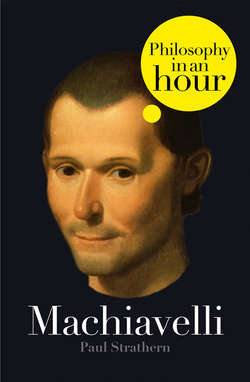Читать книгу Machiavelli: Philosophy in an Hour - Paul Strathern - Страница 4
Introduction
ОглавлениеMachiavelli’s name sends a shiver down the spine. More than 350 years after his death it remains almost synonymous with evil. Yet Machiavelli was not an evil man. And as we shall see, his political philosophy was not evil in itself. It was just extremely realistic.
Our reaction says something about us rather than about Machiavelli. The philosophy of statecraft that he put forward aimed at being scientific. This meant there was no room for sentiment or compassion – or even, ultimately, morality.
Machiavelli’s masterpiece, the single short work for which he will always be remembered, is The Prince. This is a book of advice to a prince on how to run his state. It is highly rational, psychologically perceptive, and addresses the heart of the matter with no nonsense. If you are a prince running a state, your chief aim is to remain in power and run your state to your best advantage. Machiavelli sets down how to do this, using a wealth of historical examples, and with a complete lack of sentimentality. No pussyfooting about: here’s the formula.
Machiavelli’s political philosophy intimately reflects his life, times, and circumstances. Most of his life was spent deeply involved in the politics of Renaissance Italy. As his life progresses, we see the lineaments of his philosophy beginning to emerge, feature by feature, until suddenly he falls from grace and is stripped of all that he considers to be his life. Bereft, and in complete despair, he sits down and writes his masterpiece, The Prince. In just a few months of supreme inspiration, he delivers himself of his entire political philosophy, complete and intact. Its harshness reflects the harshness of the political life he has seen, as well as the harshness of the blow he has just experienced. But this is more than just a political philosophy of its time. Machiavelli’s thought pinpoints a central aspect of the political philosophy of all time – from Alexander the Great to Saddam Hussein. And as we shall see, it also reflects one of the most profound, and profoundly disturbing, truths of the human condition.
